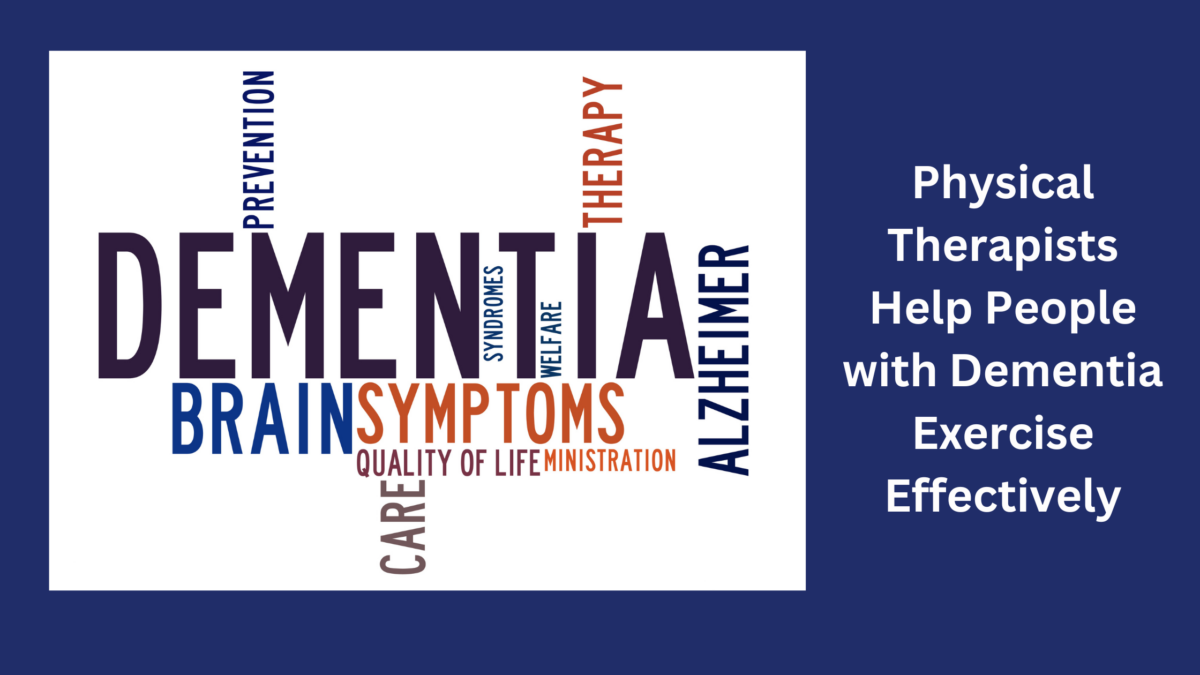According to the World Health Organization (WHO), dementia is the seventh leading cause of death worldwide and one of the major causes of disability among older people. Dementia is a group of conditions that affect the brain, causing problems with memory, thinking, communication, and behavior. Dementia has many forms, including Alzheimer’s disease, vascular dementia, Lewy body dementia (LBD), and more.
Physical activity is often recommended for people with dementia. While exercise is certainly beneficial to everyone, the evidence for exercise’s effect on dementia symptoms is mixed. Most studies do show that exercise can help to delay or reduce symptoms commonly associated with dementia such as depression or apathy. Some studies also show a benefit in delaying or reducing cognitive declines.
However, for people with dementia, it doesn’t appear as simple as “exercise and symptoms improve.” Studies have shown that the type of exercise, duration, and frequency all make a difference. For example, one study showed that people with dementia who engaged in dance movement therapy had less depression and better physical function. A second group of people who performed other types of exercise at the same intensity did not see those benefits. This is where physical therapists come in.
A therapist will conduct a thorough evaluation of the person’s medical history, physical condition, cognitive status, functional level, and personal interests. Based on this information, the physical therapist will design a personalized treatment plan that includes specific exercises and activities that target the areas that need improvement.
The treatment plan may include:
- Aerobic exercises to improve cardiovascular health, oxygen delivery to the brain, mood, energy levels, and cognitive functions.
- Strength exercises to build muscle strength and power.
- Balance exercises to challenge the person’s ability to maintain equilibrium and prevent falls.
- Functional exercises that mimic or practice daily activities that are important or meaningful to the person, such as climbing stairs, getting in and out of bed or a car, or using utensils.
- Coordination exercises or more complex movements like dance or tai chi. Evidence shows more complex movements like these have larger effects on more dementia symptoms than a more simple exercise like riding a stationary bike.
- Dual-task or cognitive exercises like combining walking with doing math problems out loud, or solving puzzles while on a stationary bike or treadmill. Again, research shows that combining physical and cognitive challenges can have a positive effect on the symptoms of dementia.
A physical therapist will monitor progress and adjust treatment plans as needed. Rather than a general approach to exercise, a physical therapist provides specific, targeted and evidence-based interventions in an individualized manner. These strategies can help people with dementia manage symptoms and improve their physical and mental health, as well as their quality of life. Physical therapy can also provide support and guidance to people with dementia and their caregivers, helping them cope and adapt to the changes and challenges that come with this condition.
The type of physical therapist and physical therapy setting that is appropriate for care of dementia depends on the level of patient symptoms. For some people that are at risk of dementia based on genetic predisposition or other factors, or who are experiencing minimal or early-stage symptoms, an outpatient clinic and/or a group therapy setting may be appropriate. As dementia progresses and it becomes more challenging for a person to remember or follow instructions, a home health or a hospital-based or rehab-center-based therapy setting may be more beneficial. It is often helpful for family members and/or caregivers to observe and otherwise be involved in patient therapy sessions, so as to be able to provide additional support.
The Alzheimer’s Society suggests that regular exercise can reduce the risk of dementia by 28%. According to the studies that this association analyzed, it was estimated that specific risk of developing Alzheimer’s disease was reduced by 45% with regular exercise activity. One study indicated that the 10% of older persons studied who exercised the least were more than twice as likely to develop Alzheimer’s disease as the 10% that exercised the most. Clearly, regular exercise as a strategy to maintain good cognitive / brain function is a good idea for everyone!

